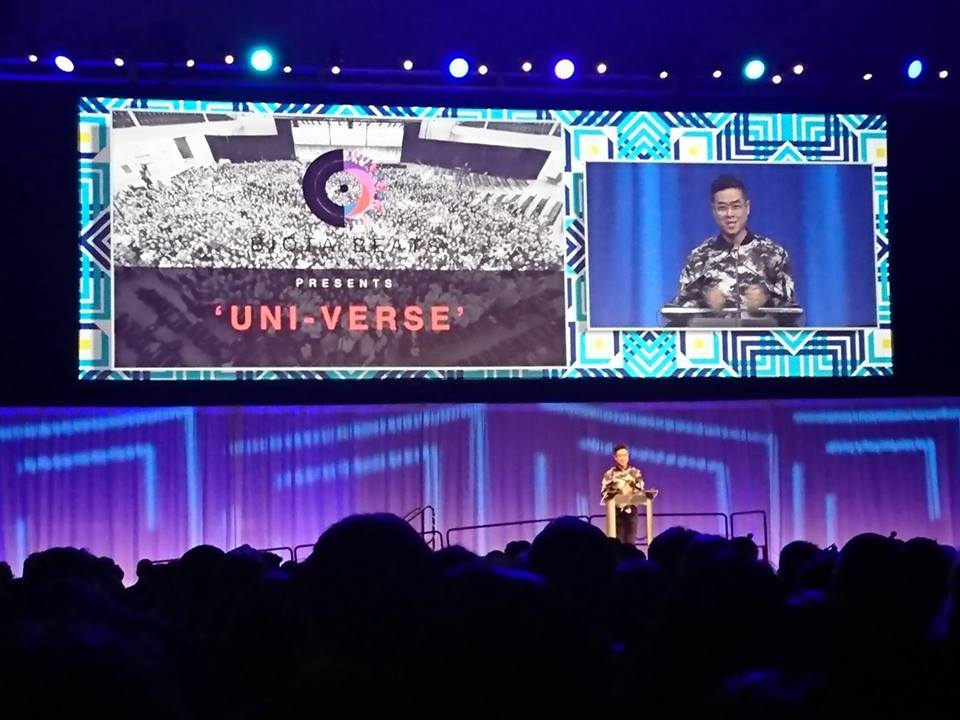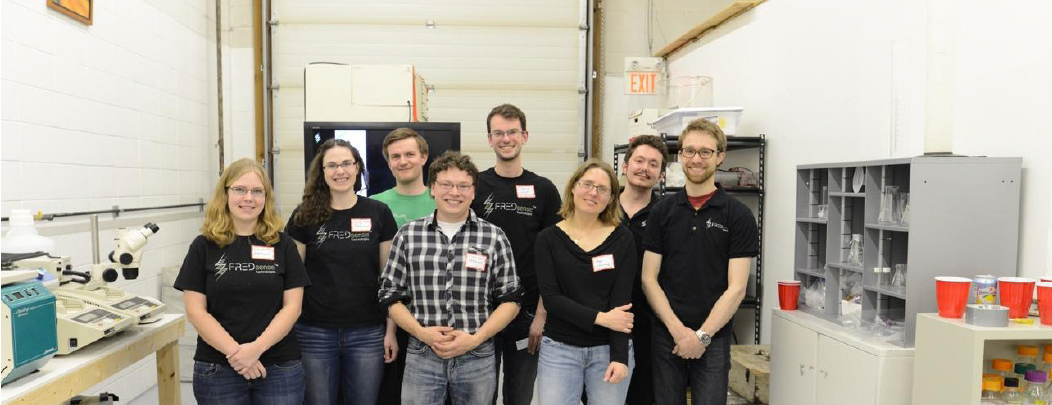Beats, Bacteria, Biotech: In Conversation with David Kong
With a mission of empowering communities through Biotechnology, David Kong has been engaged with both the community and biotechnology in different roles for many years. A synthetic biologist, community organizer, musician, and photographer, he currently serves as the Director of MIT Media Lab’s Community Biotechnology Initiative (CBI) which explores the interface between Biotechnology and Community.
By Hassnain Q Bokhari
Kong’s relationship with iGEM dates back to its earlier years when it was started as a month long course during MIT’s Independent Activities in 2003. He grew up in the Boston area and was a graduate student during the time Randy Rettberg, Tom Knight and Drew Endy were coming up with the idea of iGEM.
Over the past few years Kong has been involved with the iGEM Competition in multiple roles. From helping to create the microfluidics and hardware tracks to being the official DJ of the iGEM, he has had made sure that everyone has fun during the Competition and the Giant Jamboree.
That is not all! In 2016, his community lab the EMW Street Bio participated in the iGEM Competition and worked on a musical project called “Biota beats”.
“The project brought art and science together. It was a great opportunity for us to create a compelling narrative in invention and innovation. Music is a universal language and serves as an important tool to engage the public.”
You might be wondering how they managed to create music out of an organism which is not widely known for its singing abilities.
Well, the team grew cultures of the human microbiome on a petri-dish, and applied codes for a program which translated the images taken of the petri-dish into music.
Those who got a chance to be at the 2017 Giant Jamboree, were a lucky (massive) bunch of people. With with their microbiome David Kong and his group took the concept of Biota Beats a step further and created Uni-verse.
“Imagine Earth as an organism where each continent is an organ. We took human microbiomes from distinct body areas (specific to the individual’s continent) at the Jamboree, cultured them on the Biota-beats petri-dishes and created music which was representative of each continent’s microbiome. It was all very exciting, since we just had 72 hours to get the microbiome, do the code and turn that all into the Uni-verse which we showcased at the Giant Jamboree”
Kong’s work with The Community Biotechnology Initiative at the Media Lab in MIT combines two major parts of his life, biology and community engagement.
While speaking in detail about CBI, he informed us about the “How to Grow (Almost) Anything” course, which is not only being taught to people living in the Boston-Cambridge area but also to many individuals from different parts of the world through a distributive method of knowledge sharing.
“At How To Grow Anything we are revisiting our business model to make it more accessible to communities, most of the current infrastructure is based on the Western Business Models, but we have to revisit it so that our knowledge and technologies become more accessible.”
Kong’s research group has 3 focus areas. The first one of them is Community Innovation. This area is “grassroots” driven.
“When you talk about technology, the stakeholders which come to your mind are Academicians, Industrialists and Government officials. Since 2009, there’s an emerging community inclusion in Synthetic Biology but if you’re a part of the general public, where do you go to study the topics pertaining to Biotechnology or Synthetic Biology. The answer, nowhere. So the Community Innovation is an important interface between the public and research.”
The Community Innovation group organizes events, the biggest one of which is the Global Community Biosummit. During the Biosummit they convene the participants at the Media Lab and develop a transformative environment. Individuals who are working on or inside community labs from all over the world gather and provide an important opportunity to organize the community.
“People coming from every part of the world realize their part of the global community. When you meet and share vision, it changes you and makes you feel that you’re not alone. It makes you feel like a family”
Last year the Bio Summit was organized for the second time. Speaking on the event Kong said “The biggest thing we are focused on this (2018) years’ biosummit it to crystallize collaboration. The first year was sort of a family meeting and this year we are planning on doing action.”
Illustrated By Ananda Gabo
And the summit exactly saw what Kong talked about as at the end of all the participants developed the “Statement of Shared Purpose”:
“Our shared purpose is to fundamentally transform the life sciences and democratize biotechnology to inspire creativity and improve lives by organizing life science change-makers and bioenthusiasts to build an inclusive global network, cultivate and accessible commons of knowledge and resources, launch community laboratories and projects, and enable local educators.”
His research group is also working with the Harvard Business School and the Sloan Institute to study the community and the technology. While talking about the robustness of the open-source infrastructure in IT on which companies like Alphabet and Facebook, work on, Kong pointed out that with a similar open-source infrastructure for biotech, the technology can have a huge impact-even for the communities living far off.
The other key area of CBI is Participatory Biotechnology. “How do we develop a framework which will allow the community which is working on biotechnology to become a part of the technology development framework.”
The group is currently working with designers and social scientists so that they could also be a part of the discussion surrounding biotechnology. On the technical front his research group is working on Microfluidics. “We are developing microfluidic platforms for microbial systems, cell-cultures and 3D printing. Another important project which we are working on is Metafluidics. It is an open-source collection of design files and other information required to build microfluidic devices.”
Combined together, the Community Biotechnology Initiative intends to make a cultural impact of which Biotabeats and their recent work in Kumasi are two great examples.
Speaking on identifying distinct problems of different regions, Kong pointed out the need for researchers at top institutes need to be go out there on the field. “At MIT we can think that we are little too smart but we need to be more humble. Last year we organized an event in Ghana. So in order to start working in Ghana, we asked ourselves first, what were the issues and the most prominent one was Gold Mining. There are many concerns about the illegal mining and toxicity. We collaborated with organizations to work on models of detection and remediation (open source) to develop solutions. we also built a space in Kumasi for open-source and hardware design. That’s an example taking problem centric approach to creating solutions. Many of the regions lack an infrastructure for learning and sharing new technology and Scientific education.”
He said that the iGEM Competition is a great platform to development a knowledge sharing platform which could benefit the developing and underdeveloped countries but he also pointed out that for such communities to take full advantage of this opportunity, iGEM should develop a structure which will make cheaper for teams from such regions to participate.
The Giant Jamboree and the Global Community Bio summit have a lot in common (they both take place at the same time last year). The most important being the people. Most of the participants of the Biosummit have been a part of the iGEM Competition and have taken up important initiatives in Research, Community Science and Open Science, Startups, Policy Making with regards to Synthetic Biology. Kong appreciated and acknowledged the work and impact created by these individuals across the globe, he said:
“Impact is significant and wide ranging which has been highly influenced by their experience of the iGEM Competition. Going forward it’s important that all these individuals and those who are doing similar stuff but haven’t participated in iGEM to come together, share their work and collaborate”
This year the Bio Summit will be happening from 11th October to 13th October, 2019 and we hope to see more of our iGEMers sharing their work with the rest of the community and working together with them to create a larger impact.
Photos belong to the MIT Global Community Biosummit Organizing Team











